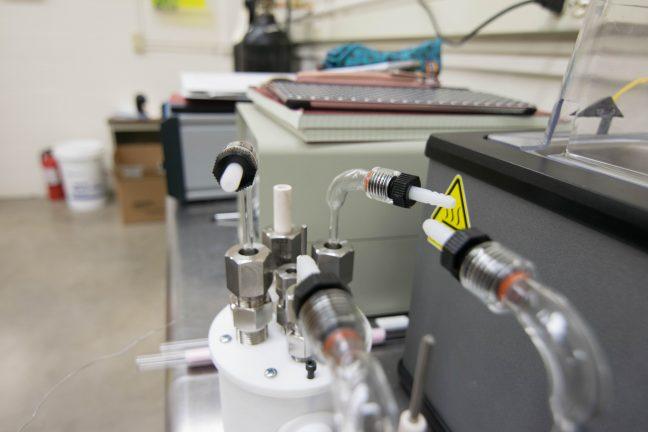In 1905, former University of Wisconsin President Charles Van Hise said, “I shall never be content until the beneficent influence of the University reaches every family of the state.” Throughout his career, Van Hise’s ambition was palpable, yet it was with this quote that one of UW’s oldest and innermost traditions were born. The Wisconsin Idea is the university’s guiding principle, asserting that the education provided here impacts people outside the doors of the classroom. Practically synonymous with Wisconsin for nearly a century, the Wisconsin Idea transcends the boundaries of its inception and is a guiding principle for our relationship with other states and nations.
It is also a guiding principle that has many questioning the utility of the research the Wisconsin Idea is meant to inspire. One of history’s greatest inventors, Thomas Alva Edison, channeled his research to a different philosophy. He said “Anything that won’t sell, I don’t want to invent. Its sale is proof of utility, and utility is success.” This pragmatic philosophy guided us to some of the most important inventions in history, like the first commercial light bulb or the motion picture camera. Both philosophies seemingly flow together, but they must remain in perfect balance for UW to remain successful.
The monetary success associated with big-name companies suggest that universities like ours should shift to a more Edison-like approach — that is, increased entrepreneurial research. Indeed, many companies that are now household names began as research by college students. Google began as a Ph.D. project of Larry Page and Sergey Brin, two graduate students at Stanford University. Facebook began in Mark Zuckerberg’s dorm room while he was an undergraduate at Harvard. And let us not forget EatStreet, the food delivery site once known as BadgerBites, whose founders met as freshman right here at UW. According to the Association of University Technology Managers, intellectual derived from university research accounted for 1,024 startup companies in 2016.
Statistics show that entrepreneurial research is more than beneficial for economic growth. Therefore, many contend that Wisconsin should shift away from the expectations of being published in academic journals and securing research grants and put more emphasis on obtaining licenses, patents and starting businesses. In essence, abandon classic scientific research for research that sells.
But the issue is more nuanced than this camp lets on. Above all else, UW is a public university and public universities juggle many responsibilities. Focusing strictly on scientific entrepreneurial research takes away from the university’s core educational mission. Only focusing on what is profitable means losing an exorbitant amount of knowledge that could be revolutionary if given the correct amount of time to be developed.
Similarly, scientific research may impede business while still benefiting humanity overall. When chlorofluorocarbons were created, they were a revolutionary product. They’re non-toxic, non-flammable, not soluble in water and easily convertible from liquid to gas and vice versa, making them perfect for aerosols and other products. But when it was discovered that the chlorine in CFCs depleted the ozone layer, they were banned. Science impeded business but helped improve the global environment.
That’s not an isolated example either. The work of Marc Edwards of Virginia Tech led to the discovery of the Flint water crisis. Residents of Flint refuse to have their water tested by any company hired by the city — a negative hit to business. Edwards has faced backlash from every institution imaginable, yet his discovery and advocacy began the righteous fight for the health and well-being of Flint’s citizens. Even though the fight is far from over if Edward’s work was never financed or taken seriously, the small amount of progress made on this front wouldn’t exist, which would be a disservice to the disadvantaged citizens of Flint.
Although entrepreneurial science is without a doubt beneficial to the economy, solely or even overly focusing our university’s resources on it can be problematic. It could impede scientific progress, which will, in turn, impede improvements to humanity’s health and well-being.
Classic academic research is the foundation of scientific progress. Entrepreneurial resources boost the economy. It is the perfect balance of the two that causes UW to be ranked 35th in Milken Institute’s 2017 study in on which American research universities were best at technology transfer through startup activity. The perfect balance is why UW has remained one of the top research institutions in the nation. The perfect balance between entrepreneurial research and traditional scientific research is central to not only scientific progress, but the Wisconsin Idea itself — our guiding principle, the soul of the university — and must continue for generations of Badgers.
Abigail Steinberg (asteinberg@badgerherald.com) is a freshman majoring in political science and intending to major in journalism.


